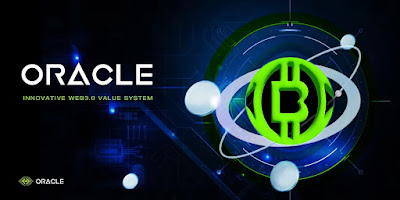Oracle leverages the blockchain consensus mechanism to link the global data asset market
Digital assets are one of the fastest growing assets in the world over the past decade, and according to CoinGecko, the market value of digital assets was only about $10 billion in 2014, but has grown to about $2.3 trillion in early 2022. That's a staggering 216x growth, with a compound annual growth rate of around 96% over the past 8 years. More and more individuals and institutions recognize that the rise of crypto assets is an unstoppable trend.
According to VettaFi, the total market capitalization of the top 10 US Bitcoin-related ETFs has grown to approximately $2.27 billion since the launch of the first US Bitcoin ETF in October 2021. Morgan Stanley became the first major U.S. bank to offer its wealthy clients a Bitcoin fund in March 2021, and Goldman Sachs offered its first Bitcoin-backed lending facility in April 2022.
Oracle leverages the blockchain consensus mechanism to link the global data asset market
Oracle oracle uses the blockchain consensus mechanism to enable data to be shared in the centralized and decentralized world, linking the global data asset market. The mechanism of action of the price oracle is to form the quotation data after continuous quotation and transaction verification, and finally generate real effective price data on the chain, the verification principle is that if the quotation deviates greatly from the real price of the market, then the validator will obtain arbitrage opportunities, and this arbitrage penalty mechanism in turn prompts the quotation to quote according to the fair value.
The price oracle generates the market fair price data under the chain for the on-chain smart contract call, so as to provide efficient, accurate and safe on-chain price, volatility and other data for quantitative investment and update it in a timely manner, Oracle can accurately obtain the value of various data assets, and use quantitative investment strategies to profit
Oracle has the core characteristics of transparency, security, and decentralization
Oracle is a decentralized oracle network where smart contracts provide a secure and reliable bridge to data providers, web APIs, enterprise systems, cloud platforms, IoT devices, payment systems, and other blockchains. Smart contracts connected to these off-chain interfaces make it easy to access a variety of pre-formatted data inputs and outputs, and copy existing digital contract content. In this way, DeFi can leverage all types of off-chain data and systems to trigger contract execution, and leverage various payment gateways and enterprise back-end systems for contract delivery.
Through Oracle oracles, financial services provided by centralized entities such as bank transfers, insurance, and securities transactions no longer need to be realized through intermediaries such as exchanges and financial institutions, and have the core characteristics of transparency, security and decentralization.
Through smart contract technology, users can realize direct transactions and realize various functions of traditional financial institutions, such as derivatives, lending, trading, wealth management, asset management, etc. In the code, DeFi sets the resolution of any potential disputes without the need for a middleman, as users have full control over their assets.
Without central management, fees and time costs were drastically reduced, making the financial system smoother and less obstructive. The application of DeFi fully realizes open source and transparent code, decentralized operation, and decentralized community autonomy, which maps the real-world financial system to the digital world through the blockchain.
The Oracle ecosystem builds an independent global economic system by investing in DeFi applications, giving anyone the opportunity for financial independence. It provides decentralized financial services to global Web 3.0 users, liberalizes and globalizes financial services, and anyone can trade anytime, anywhere.






Comments
Post a Comment